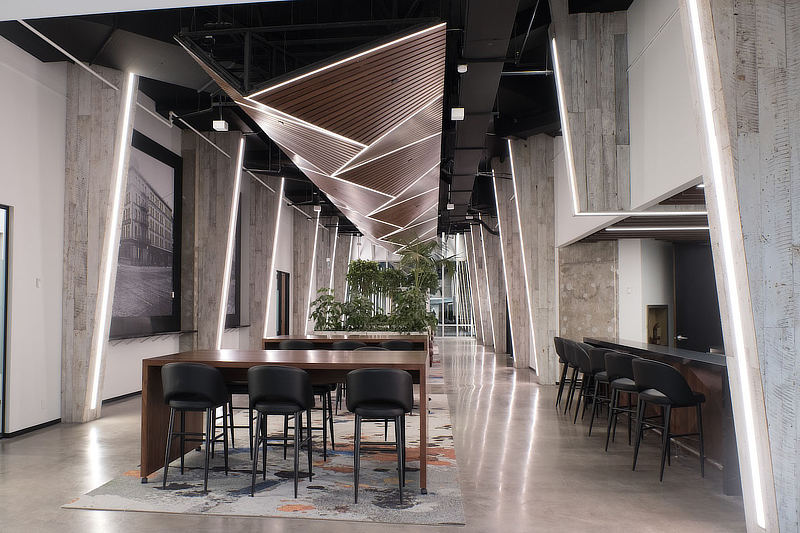
Toronto family law Mediation – Arbitration is an exciting way of promptly resolving family law disputes in Toronto and the rest of Ontario. Senior Toronto and Calgary family lawyer Peter Graburn explains the benefits of using Toronto Family Law Mediation – Arbitration. MacLean Law has offices across Canada and our Toronto family lawyers office is located at 253-150 King St West.
Resolving disputes upon the breakdown of family relationships can be difficult. Issues such as parenting of children, financial support, and division of family property may be hotly contested by separating family partners. But do these disputes always have to be resolved by a Judge or Justice in family Court? No. Sometimes separating spouses choose to resolve these disputes out of Court by using private 3rd party mediators and decision-makers. This is Toronto family law Mediation – Arbitration. For more information on the process go to this link.

Toronto Family Law Mediation – Arbitration
Forms of Mediation – Arbitration
In a previous article Calgary Alberta Family Law Mediation, we discussed some of the different types of family law Mediation – Arbitration processes, including:
- Mediation – family law mediation is a process where separating spouses hire someone with dispute resolution training (often a lawyer) to help them try to resolve their family law disputes. The Mediator does not give legal advice or make any decisions for the ex-spouses, but assists them to agree on those issues by themselves;
- Collaborative Law – collaborative family law is a process where separating spouses each retain their own registered Collaborative Law Lawyer and try to resolve their family law disputes in a collaborative, non-adversarial manner. Once agreeing, the ex-spouses and their Collaborative Law lawyers can then prepare and sign a binding Separation Agreement;
- Mediation / Arbitration – mediation/arbitration is a process that can best be described as ‘private decision-making’. Instead of a Court making a decision on the disputed family law issues, the Arbitrator (usually a senior family law lawyer) authorized under the provincial Arbitration Act can make those decisions after trying to mediate an agreement between the ex-spouses. The Arbitrator’s Award can then be filed with (and enforced by) the Court similar to a Court Order or Judgement. In Ontario, Section 59 of the Family Law Act recognizes “family arbitrations, family arbitration agreements, and family arbitration awards” as forms of domestic contracts.
MacLean Law Toronto Family Lawyers 416 900 3428
Benefits of Mediation – Arbitration
These processes – mediation; collaborative law; mediation/arbitration – are all part of family law decision-making known as Alternative Dispute Resolution (ADR) – alternatives to Court. ADR is recognized and even encouraged by the Courts. An example of this is the Dispute Resolution Officer (DRO) Program in Ontario (Toronto, Brampton, Milton, Newmarket, Barrie, Durham, and Hamilton) and Alberta (Calgary), where senior family lawyers are appointed to assist ex-spouses to try to resolve their family law disputes before they come to Court.
But why try to resolve family law disputes through any of these Mediation – Arbitration processes rather than simply going to Court? The benefits and advantages of family law Mediation – Arbitration include:
► Control – in the Court process, the final decision affecting the ex-spouses’ family matters is in the hands of the Judge or Justice. In the Mediation and Collaborative Law processes, both ex-spouses have an equal opportunity to have more direct input and control over those final decisions than in the Court process;
► Confidentiality – the Court process is public – not only what is said and decided in open Court, but also many of the documents (ie. financial records) filed in support of the matter. Mediation, Collaborative Law and Mediation – Arbitration, on the other hand, are all private, voluntary and confidential – of particular advantage in the case of complex or high profile, high net-worth or high-conflict separations;
► Creativity – in the Court process, a decision may often be a one-sided, “winner take all” solution. In the Mediation and Collaborative law processes, the ex-spouses may be able to craft an agreement that is more practical, creative (ie. thinking “outside-the-box”) and mutually beneficial (ie. “win-win”) to their particular situation than the Court could impose;
► Cost – perhaps the most significant advantage of the Mediation – Arbitration processes over the Court process is the reduced costs, including:
- Time – Courts are backlogged (especially following the COVID-19 shutdown). Mediations and Arbitrations (even with very senior family law lawyers) can usually be booked within weeks or months (or earlier for serious situations) to get a more timely resolution than proceeding though Court;
- Money – Court is a formal, procedural, and document-heavy process and therefore usually a more expensive process than Mediation – Arbitration. In Mediation – Arbitration, the parties can agree on the degree of formality and processes to be used, significantly reducing costs;
- Emotional – one of the highest costs of resolving family matters is the emotional cost, not only on the separating couple but on their children. Mediation – Arbitration provides a greater opportunity than Court to resolve family law disputes civilly and respectfully to maintain (as much as possible) family relationships in the future.
Toronto Family Law Mediation – Arbitration
There are many benefits and advantages to using ADR processes to resolve family law disputes rather than courts – they are generally more respectful, cost-effective, and confidential than courts. But are ADR processes better in all situations? No. There may be some situations (ie. domestic abuse, power imbalances, dependencies, etc.) where ADR is not appropriate. Sometimes ex-spouses simply cannot agree and the dispute needs to proceed through Court.
But generally, Mediation – Arbitration (ADR) is usually the better way to resolve family law disputes – it is usually faster, cheaper, and results in better resolution of these disputes than proceeding through Court. Even the Courts encourage the use of these processes.
But family law Mediation – Arbitration is voluntary – unless both parties agree to some form of mediation, the dispute will have to be resolved by the Courts. Speak to one of our top-rated family lawyers from Canada’s national family law firm about the different options available for resolving your family law disputes through Toronto family law Mediation – Arbitration.
Contact our senior Toronto Family Law Mediation – Arbitration lawyer today at 416 900 3428








